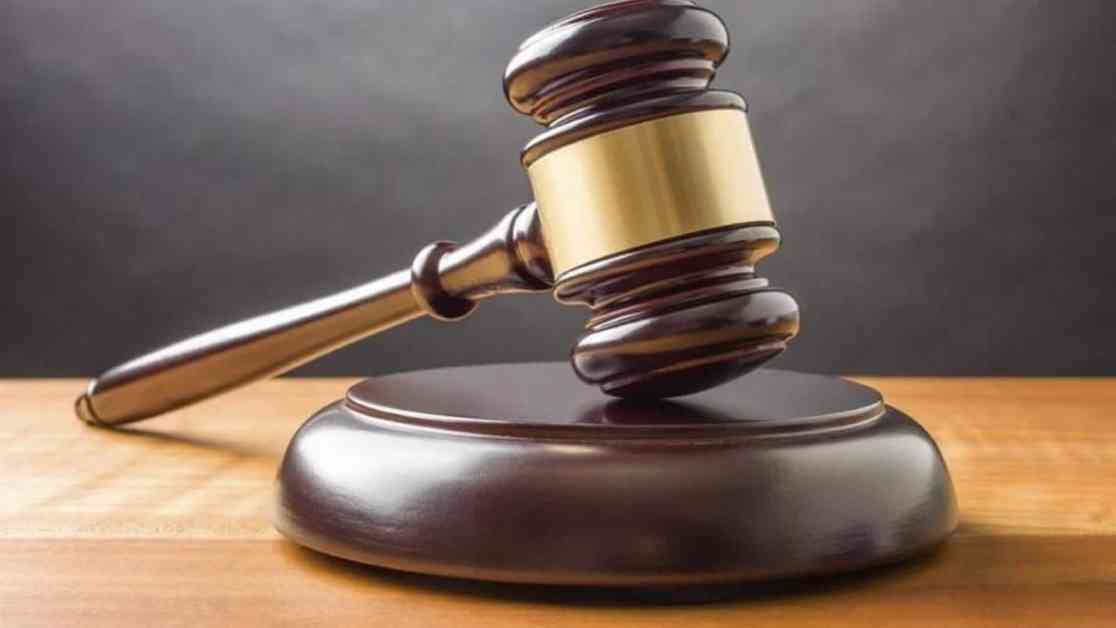Bail Granted to 96% Disabled Man Accused of Raping Minor
The Bombay High Court recently made headlines after granting bail to a disabled man accused of raping a minor. The court deemed the prosecution’s claims as “farfetched” due to the man’s severe disability, sparking a debate on the intersection of disability rights and criminal justice. Let’s delve deeper into the case and explore the implications of this decision.
The Case: A Disabled Man Accused of Rape
The Andheri resident in question was arrested on October 16, 2023, following allegations of raping a minor girl. The Andheri police had registered an offense against him under various sections of the Indian Penal Code and the Protection of Children from Sexual Offenses (POCSO) Act. The man, who suffers from spinal dysraphism with a 96% disability, was accused of overpowering the teenager and sexually assaulting her.
However, the defense argued that the man’s physical condition made it impossible for him to have committed the alleged assault. His disability certificate provided concrete evidence of his severe limitations, casting doubt on the prosecution’s narrative. The medical examination of the minor girl also revealed no evidence of penetrative sexual assault, as required by the POCSO Act.
The High Court’s Ruling: Balancing Disability Rights and Justice
In a groundbreaking decision, the Bombay High Court granted bail to the disabled man, emphasizing the lack of evidence to support the prosecution’s claims. Justice Sarang Kotwal, presiding over the case, noted that the allegations of physical overpowering seemed “farfetched” in light of the man’s disability. The court deemed it unnecessary to keep a 96% disabled individual in judicial custody during the trial, highlighting the importance of considering the unique circumstances of each case.
The ruling sparked a debate on the intersection of disability rights and justice, raising questions about how the legal system accommodates individuals with disabilities. While the court’s decision was based on the specific facts of this case, it sheds light on the challenges faced by disabled individuals within the criminal justice system.
Implications and Considerations: Navigating Complex Legal Terrain
The case of the disabled man accused of raping a minor brings to the forefront the complexities of navigating the legal terrain for individuals with disabilities. The intersection of disability rights and criminal justice requires a nuanced approach that takes into account the unique challenges faced by disabled individuals.
Subheadings:
1. Disability Rights in the Criminal Justice System
2. Challenges Faced by Disabled Individuals
3. Ensuring Fairness and Accessibility in Legal Proceedings
Disability Rights in the Criminal Justice System
The case raises important questions about the protection of disability rights within the criminal justice system. How do we ensure that individuals with disabilities are treated fairly and equitably in legal proceedings? The Bombay High Court’s decision to grant bail to the disabled man reflects a recognition of the need to consider the impact of disabilities on individuals’ ability to navigate the legal system.
Challenges Faced by Disabled Individuals
Individuals with disabilities often face unique challenges when interacting with the legal system. From physical barriers to communication difficulties, disabled individuals may encounter obstacles that hinder their access to justice. In the case of the disabled man accused of raping a minor, his severe disability played a crucial role in shaping the court’s decision to grant bail.
Ensuring Fairness and Accessibility in Legal Proceedings
Moving forward, it is essential to ensure that legal proceedings are accessible and fair for individuals with disabilities. This includes providing accommodations such as sign language interpreters, accessible courtrooms, and alternative formats for legal documents. By prioritizing accessibility and fairness, we can uphold the rights of disabled individuals within the criminal justice system.
In Conclusion
The case of the disabled man accused of raping a minor highlights the importance of considering disability rights in legal proceedings. The Bombay High Court’s decision to grant bail to the disabled man underscores the need for a more inclusive and accessible justice system. By recognizing the unique challenges faced by disabled individuals, we can work towards a legal system that upholds the rights and dignity of all individuals, regardless of their abilities.




















